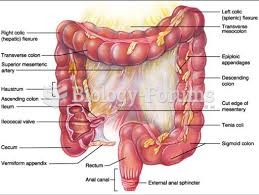|
|
|
The Centers for Disease Control and Prevention (CDC) was originally known as the Communicable Disease Center, which was formed to fight malaria. It was originally headquartered in Atlanta, Georgia, since the Southern states faced the worst threat from malaria.
People with high total cholesterol have about two times the risk for heart disease as people with ideal levels.
Drying your hands with a paper towel will reduce the bacterial count on your hands by 45–60%.
Nearly 31 million adults in America have a total cholesterol level that is more than 240 mg per dL.
According to the National Institute of Environmental Health Sciences, lung disease is the third leading killer in the United States, responsible for one in seven deaths. It is the leading cause of death among infants under the age of one year.
 Areas of Mediterranean shrubland in southern California periodically burn over large areas, destroyi
Areas of Mediterranean shrubland in southern California periodically burn over large areas, destroyi
 Alligators are apex predators capable of killing large terrestrial prey. This large AAmerican alliga
Alligators are apex predators capable of killing large terrestrial prey. This large AAmerican alliga





